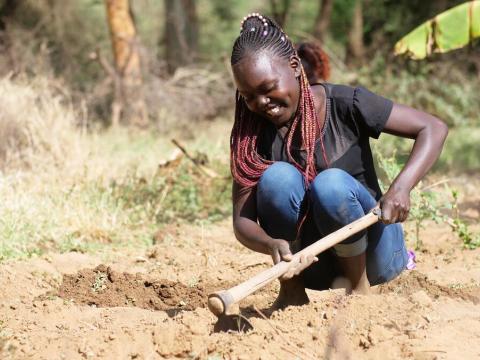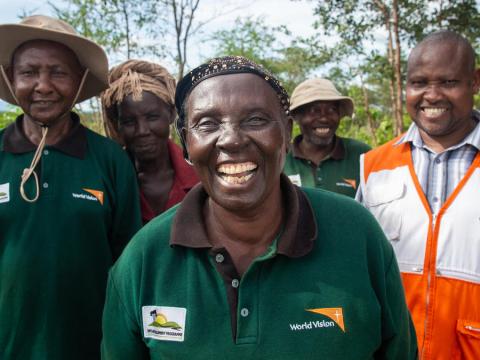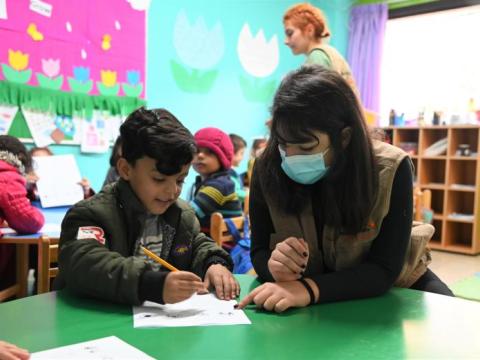
Kenyan advocate: We tackle climate change to tackle hunger
Youth advocate Ruth shares how a technique to restore trees and shrubs called FMNR has meant more food for children and youth who desperately needed it.
Ruth Jerotich, a FMNR Youth Champion in Kenya
In my community, we’ve been experiencing drought frequently over the past few years and rivers are drying up. Girls were walking for more than two miles looking for water, and when they got back there wouldn’t be anything to eat. It would take another three hours to collect firewood, without which we can’t cook any food we did have.
It was amazing when in 2018, World Vision introduced Farmer Managed Natural Regeneration (FMNR) in my community. FMNR is a land restoration technique where farmers selectively prune existing trees and encourage the regrowth of some trees and shrubs that have been cut or burnt. Farmers adopted FMNR because it’s easy to practice.
We learnt to protect our indigenous resources and trees, and to plant fruit trees such as mangoes and oranges too, which help to earn extra money. FMNR techniques help us to use our own resources without having to travel a long way to collect food and pasture for livestock. By helping plant and protect trees, we’re able to produce more food and children in the community have a balanced diet.
I was excited to learn about FMNR and have been working as a youth champion for the past two years in the community to encourage other people to adapt the practices too. Our rivers are starting to fill up, and people in my community have planted crops which help to feed their children. Now, we have food.
Before, a lot of children were malnourished because there was not enough food. This was affecting their health, education and their futures. After FMNR, farmers have planted vegetables and beans to supplement their nutrition. The wellbeing of children is improving and our government needs to support more of such projects.

Leaders at COP should address the real issues – climate change is leaving people hungry
The COP that is happening now in Glasgow seems quite technical and is hard for normal people to follow. What I can talk about is the practicalities. Governments should support people so that they can feed their children. Governments should have ways to help people, and chip in and encourage people in the community how to fight malnutrition.
Youth can play an important role in fighting climate change by raising awareness and changing attitudes. We can be role models and champion grassroots movements like FMNR to train people on how to protect the environment. As an FMNR youth champion, we educate farmers through videos and social media and encourage farmers on how to conserve the environment.
Youth can raise awareness in schools and form environmental clubs. We can engage with governments and other institutions to point out where they should be allocating more resources.

Besides making sure people are fed and protected from the effects of climate change, governments must also support youth programmes on climate change. This includes projects like FMNR and speeding up the formation of 4K Clubs in schools. This is how boys and girls will learn both about the impacts of climate change, as well as ways of mitigation and adaptation. That is how the future of children in Kenya and around the world will be protected.
To learn about the link between climate change and extreme hunger read World Vision new report Climate Change, Hunger and Children's Futures
Learn more about World Vision's attendance at COP26 here and our work on addressing the climate crisis here
Twenty-one-year-old Ruth is a FMNR youth Champion, who joined World Vision Kenya's FMNR project in 2018. She has helped form a youth grassroots movement to create community awareness on FMNR as a climate change adaption and mitigation land restoration technique.

